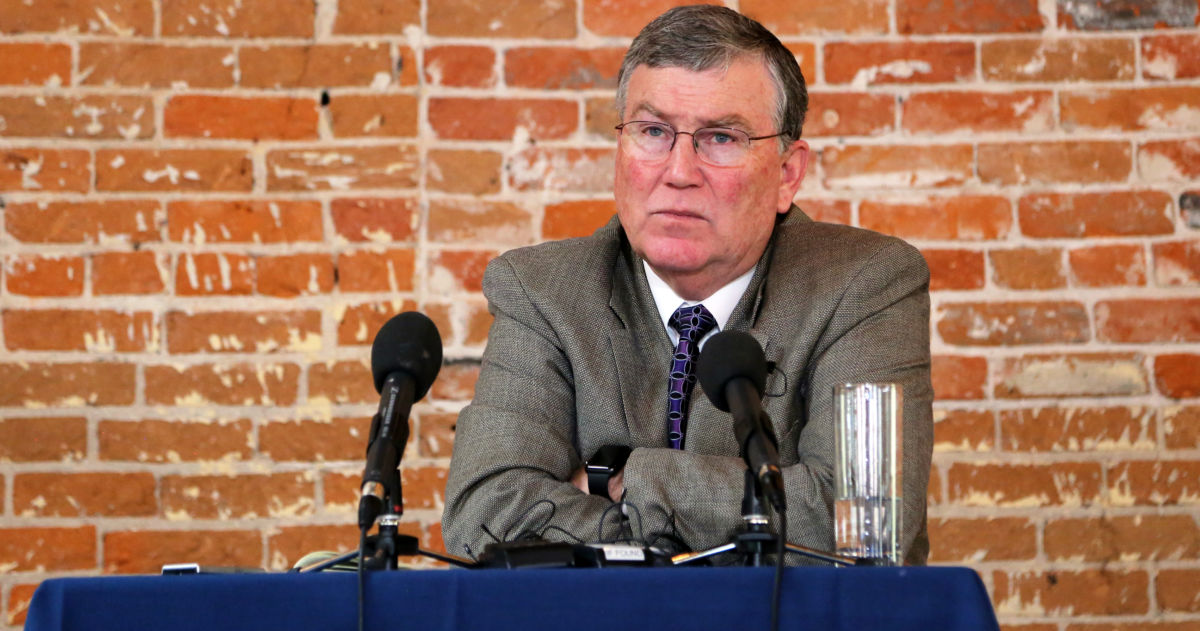If a legislative session can be summed up in three words, 2017 could go down as the “wait-and-see” session.
As lawmakers head into their final few weeks in the Statehouse, they’re poised to leave a lot of issues unresolved. There’s the Medicaid issue, which seems perennially in flux. But some big K-12 issues will probably remain on hold until 2018.
Yup, it’s been a slow session. You probably didn’t hear that here first. Other writers have reported on or opined about the plodding pace of things around the Statehouse. And that doesn’t go over too well with reporters, who view political doldrums with a scorn usually reserved for decaf.

So, not surprisingly, House Speaker Scott Bedke got a grilling over the slow session Wednesday, when he met for a lunch-hour Q&A sponsored by the Idaho Press Club.
Idaho Public Television’s Seth Ogilvie cut to the chase with his question. The 2017 session is all but over, the 2018 session will coincide with a wide-open race for governor, the 2019 session will be year one for a new governor, and the 2020 session will coincide with the presidential election.
Given that, Ogilvie asked, will Idaho be in wait-and-see mode for several years?
“I don’t know,” said Bedke, not missing a beat. “Let’s wait and see.”
He’ll be here all week, folks.
In all fairness, these are unusual times. Again, you didn’t hear that here first. But the transition in the White House overshadows all else in politics. (We get that. Our website set a monthly record for pageviews in February, and to no small degree, we have Betsy DeVos to thank for that.)

When Gov. Butch Otter held his annual Idaho Press Club Q&A in early February, questions about the Trump transition dominated the proceedings. There were two extenuating circumstances. First, Otter spent several minutes parsing words about the Trump travel ban — insisting that a policy that allowed Christians into the U.S. was a matter of “preference,” not “discrimination.” Second, Otter had to field a few questions about his not-exactly-secret interest in a job with the Trump team.
But even removing variables from the equation, Otter spent considerable time talking about governing during the Trump transition, particularly the “turmoil” surrounding the Affordable Care Act.
For Otter and legislators looking to wait and see on health care, the new administration certainly provided cover.
There’s no shortage of turmoil surrounding K-12 issues. It’s still unclear how Trump and DeVos will try to encourage school vouchers, aside from the fact that it’s a priority. It’s unclear what they will do to implement the 2015 Every Student Succeeds Act, the federal education law. Then there’s the money, such as the $264 million that flows into Idaho every year for K-12.
On Wednesday, Bedke suggested the state would still figure out a way to maintain viable Head Start and Title I school programs, with or without federal funding. But that doesn’t mean he wants Idaho to forgo the money Idahoans pay into the federal system. “I still think we’re entitled to our fair share,” said Bedke, R-Oakley.
But this Legislature also seems ready to put off other decisions on K-12, and entirely of its own choosing.
The Senate-House compromise on school science standards promises another discussion on climate change, in 2018.
The K-12 budgets that passed the Joint Finance-Appropriations Committee do not create a line item for health benefits, a priority for Otter and Senate Education Committee Chairman Dean Mortimer. If these budgets pass as written, expect a long discussion about health care costs during the offseason, as a legislative interim committee continues to review Idaho’s school funding formula.
Then again, the K-12 budgets aren’t set. Mortimer lost on this issue in JFAC Monday — but in an interview with Idaho Public TV Thursday, he suggested he might continue his fight on the Senate floor.
So, wait and see.
Why not?
